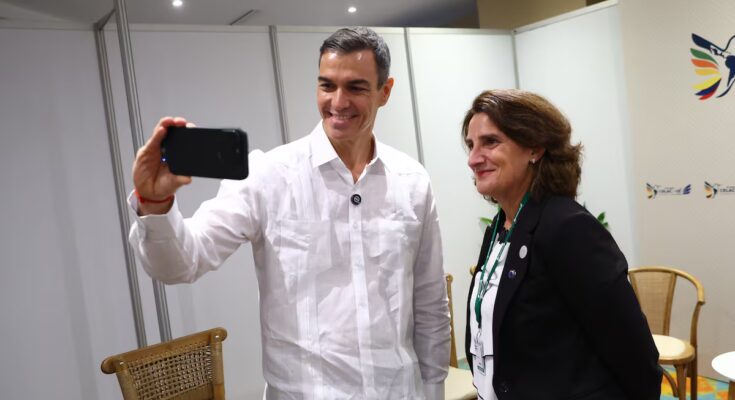The President of the Government takes the floor: “Some social networks, which originally had a very different purpose from the one they have today, do not propagate the truth, but propagate hoaxes; they do not propagate coexistence, but propagate polarization. And this has a lot to do with the political purposes of some technoligarchs who actively or publicly influence electoral processes (…). We are seeing it in the United Kingdom, in Germany, in France (…) and without a doubt we will see it”. see it in Spain.”
Pedro Sanchez is right. Last week, the British television network Sky published a report in which nine X (formerly Twitter) accounts were created emulating nine people with three different political interests: three left-wing, three right-wing and three centre-right. The investigation concluded that technoligarch Elon Musk’s social network is amplifying radical far-right content — not coincidentally, Musk’s own ideology.
It is an absolutely premeditated decision. As of this month, the traditional X algorithm has been completely abandoned. The artificial intelligence owned by Musk, Grok, is the one that will decide at any time, theoretically, which content to offer in response to the interests of the platform’s users. Grok, like all generative AI, initially tended to offer a bias in its responses that paralleled the biases of the majority of content on the Internet. But from the beginning this seemed insufficient to Musk, who has never hidden the desire for his artificial intelligence to think as he thinks, with its technophilic, transphobic and racist prejudices. Their last measure was to force their AI to use Grokipedia, the version of Wikipedia adapted to the boss’s biases.
Other social networks have other problems. A Reuters investigation has indicated that 10% of the revenue of Meta, the giant that includes Facebook, Instagram and WhatsApp, comes from advertising fraudulent products and services such as online scams, illegal casinos and irregular sales of medicines. There are more than 15 billion ads per year which earn Mark Zuckerberg’s company a whopping $16 billion per year.
These are the platforms on which the Spanish state uploads much of its institutional communication through networks, a very important channel, especially among young people. Of course, what these networks offer is a significant user base that doesn’t exist elsewhere. But, forcing the Spaniards to access Sánchez knows it perfectly; He said it this and other times. But the Government, or rather, those who carry out its communication policy, do not seem to do anything to resolve it.
Doctor John Snow was one of the pioneers of epidemiology when he linked a cholera epidemic in Victorian London to a water pump in Soho. The plague ended when, despite widespread protests, the pump was shut down. The Government notes that the population, in Spain and elsewhere, drinks poisoned water, which has a deleterious effect on their health and that of society as a whole. But, out of inertia, fear, or a combination of both, he dares not do anything other than try to change the taste of the water, when there is no other solution than to change the well.
Some administrations, such as the European Commission, the City of Barcelona or AEMET, have started to move, but so far their movements have been insufficient. Immediately establishing a timetable for abandoning commercial social media is a moral imperative for Europe’s democratic governments. Sanchez knows it. What are we waiting for?



